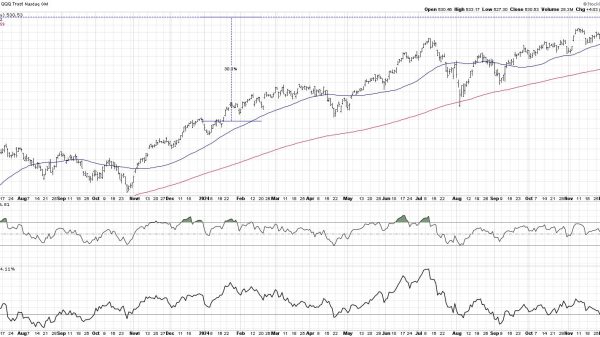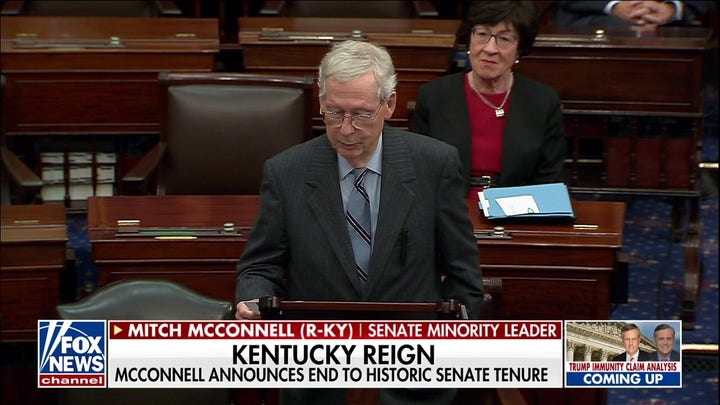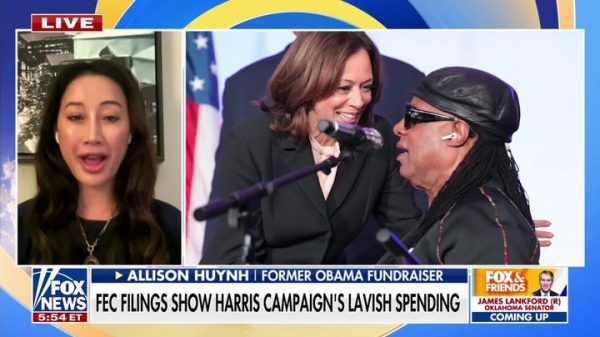As Senator Mitch McConnell approaches the finish line on his record-setting tenure as Senate Republican leader, histories of his outsized impact on American policy and politics are already being written. One can’t overstate his accomplishments on issues ranging from the judiciary to the tax code to foreign policy, and commentators will rightly focus on those successes.
But another, smaller part of Minority Leader McConnell’s legacy also warrants special attention. From the time he was a junior senator, he has been the single greatest champion for free speech in political campaigns in America. And while McConnell may have lost a few fights during his tenure, I believe he ultimately won the campaign finance wars.
McConnell’s views on campaign finance were forged by his first runs for elected office. As he wrote in his memoir, ‘I never would have been able to win my race if there had been a limit on the amount of money I could raise and spend.’ He understands that the Constitution’s framers saw political speech — especially speech about elections and candidates for office — as the core of the First Amendment, and he has put that belief into action when it came to legislation to restrict political campaigning.
To understand McConnell’s dogged commitment to the cause of free speech, one need look no further than his battle against the Bipartisan Campaign Reform Act of 2002 (BCRA). Pushed by Republican Senator John McCain and Democrat Senator Russ Feingold, the bill imposed a raft of new campaign finance regulations and restrictions on political speech.
During its debate, McConnell led the opposition, arguing that the legislation ‘severely restricts the groups which average citizens join to express themselves: issue advocacy groups and political parties’ and ‘violates our First Amendment rights.’
After failing to block the bill’s passage, McConnell didn’t give up. Instead, he walked out of the Senate chamber and down Constitution Avenue to the federal courthouse, where he filed one of the first lawsuits challenging the new law. That case made it up to the Supreme Court as McConnell v. FEC, a decision the senator narrowly lost in a fractured 5-4 opinion, largely upholding the legislation.
Losing an eponymous Supreme Court case would persuade most to throw in the towel. But not McConnell. Instead, he immediately set about laying the groundwork for a comeback, beginning with the judiciary and the Federal Election Commission.
Understanding that personnel is policy, McConnell pushed commissioners and judicial nominees committed to the First Amendment who could impact how BCRA was implemented and constitutionally reviewed.
The results were almost immediate. Beginning in 2006, the Supreme Court and lower courts issued a series of decisions invalidating provisions of BCRA as unconstitutional, the most important being Citizens United v. FEC. In nearly every one of those Supreme Court decisions, the Court received an amicus curiae brief from McConnell urging it to strike down various parts of the law.
Over the same period, the FEC — the agency tasked with enforcing campaign finance law — resisted overbroad regulation and belligerent enforcement thanks to its Republican appointees. In fact, over the last several years, the Republican commissioners, joined by Democratic colleagues, have made significant progress rolling back regulations. As one advocate for stricter speech regulation recently bemoaned in the New York Times: ‘It is breathtaking the speed with which the rules are being torn down.’ He can thank McConnell for that.
Yet more and more, candidates and legal practitioners from both parties have come around to McConnell’s point of view. Lawyers for both political parties are increasingly seeking to deregulate campaign finance at the FEC and in the courts.
After failing to block the bill’s passage, McConnell didn’t give up. Instead, he walked out of the Senate chamber and down Constitution Avenue to the federal courthouse, where he filed one of the first lawsuits challenging the new law. That case made it up to the Supreme Court as McConnell v. FEC, a decision the senator narrowly lost in a fractured 5-4 opinion, largely upholding the legislation.
Both sides have learned to embrace big spending and light-touch regulation, free to run their campaigns without the government’s micromanagement. This new bipartisan consensus is a far cry from McCain and Feingold’s vision of a tightly controlled campaign finance system, and it shows no signs of ending soon.
It’s a consistent theme throughout his career: Senator McConnell played the long game. Among his many accomplishments, he should be proud to have always stood up for the First Amendment, even when it wasn’t popular. His decades-long battle against overregulating political speech embodies British Prime Minister Margaret Thatcher’s aphorism that you may have to fight a battle more than once to win it. America’s democracy and constitutional freedoms are better off because he did.
























